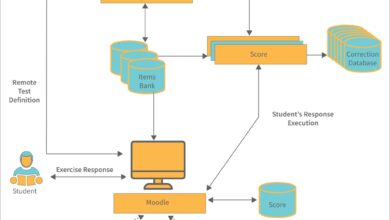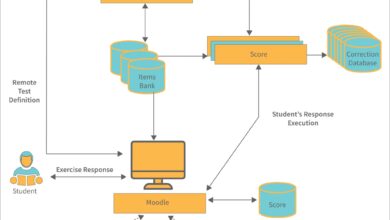System Engineer Jobs: 7 Powerful Insights for 2024
Thinking about a career in tech? System engineer jobs are booming, offering stability, high pay, and endless growth. Let’s dive into what makes this role one of the most powerful in the digital age.
What Are System Engineer Jobs?

System engineer jobs involve designing, implementing, and maintaining complex systems that power modern organizations. These systems can be hardware, software, or a hybrid of both, and they are essential for ensuring seamless operations across industries like IT, telecommunications, aerospace, and finance.
Core Responsibilities of a System Engineer
System engineers are the backbone of technological infrastructure. Their day-to-day tasks vary depending on the industry and organization, but some core responsibilities remain consistent.
- Designing and configuring IT systems and networks
- Monitoring system performance and troubleshooting issues
- Implementing security protocols and disaster recovery plans
- Collaborating with development, operations, and security teams
- Documenting system architecture and operational procedures
“A system engineer doesn’t just fix problems—they anticipate them.” — TechOps Lead, Google
Industries That Hire System Engineers
System engineer jobs are not limited to one sector. In fact, nearly every industry that relies on technology needs system engineers.
- Information Technology: From cloud platforms to on-premise servers, IT firms are the largest employers.
- Telecommunications: Managing network infrastructure and ensuring uptime for millions of users.
- Healthcare: Securing patient data and maintaining electronic health record systems.
- Finance: Ensuring transaction systems are secure, fast, and compliant with regulations.
- Government & Defense: Protecting national infrastructure and managing secure communication networks.
According to the U.S. Bureau of Labor Statistics, employment for systems analysts and engineers is projected to grow 10% from 2022 to 2032, much faster than the average for all occupations.
Why System Engineer Jobs Are in High Demand
The digital transformation of businesses has made system engineer jobs more critical than ever. As companies migrate to the cloud, adopt AI, and expand remote work, the need for skilled system engineers skyrockets.
Impact of Digital Transformation
Organizations are no longer just adopting technology—they’re being rebuilt around it. This shift requires professionals who can manage the complexity of interconnected systems.
- Legacy systems are being replaced with scalable, cloud-native architectures.
- Hybrid work models demand robust, secure, and accessible IT environments.
- Automation and orchestration tools require expert configuration and oversight.
System engineers ensure that these transitions happen smoothly, minimizing downtime and maximizing efficiency.
Cloud Computing and DevOps Integration
The rise of cloud platforms like AWS, Microsoft Azure, and Google Cloud has revolutionized system engineering. Today’s system engineer jobs often require expertise in cloud infrastructure, containerization (e.g., Docker, Kubernetes), and infrastructure-as-code (IaC) tools like Terraform.
- Cloud environments require continuous monitoring and optimization.
- DevOps practices blur the lines between development and operations, requiring engineers to be fluent in both.
- Automation reduces manual errors and increases deployment speed.
As noted by Amazon Web Services, DevOps culture is now a standard in tech, and system engineers are at the heart of this movement.
Essential Skills for System Engineer Jobs
To thrive in system engineer jobs, professionals need a blend of technical expertise, problem-solving ability, and soft skills. Let’s break down the most in-demand competencies.
Technical Skills You Must Master
System engineers must be proficient in a wide range of technologies. Here are the most critical ones:
- Operating Systems: Deep knowledge of Linux, Windows Server, and Unix-based systems.
- Networking: Understanding of TCP/IP, DNS, firewalls, VLANs, and routing protocols.
- Scripting & Automation: Proficiency in Python, Bash, PowerShell, or Perl for automating repetitive tasks.
- Virtualization: Experience with VMware, Hyper-V, or KVM for managing virtual machines.
- Cloud Platforms: Hands-on experience with AWS, Azure, or GCP, including services like EC2, S3, and IAM.
- Monitoring Tools: Familiarity with Nagios, Zabbix, Prometheus, or Datadog for system health tracking.
These skills are often listed in job postings across platforms like LinkedIn and Indeed, making them non-negotiable for serious candidates.
Soft Skills That Set You Apart
Technical prowess alone isn’t enough. System engineers must communicate effectively, manage stress, and collaborate across teams.
- Problem-Solving: The ability to diagnose issues quickly under pressure.
- Communication: Explaining technical concepts to non-technical stakeholders.
- Time Management: Juggling multiple tasks and priorities in fast-paced environments.
- Team Collaboration: Working with developers, security experts, and business leaders.
- Adaptability: Staying current with rapidly evolving technologies.
“The best system engineers aren’t just tech geniuses—they’re great listeners and team players.” — CTO, TechNova Inc.
How to Get Started in System Engineer Jobs
Breaking into system engineer jobs requires a strategic approach. Whether you’re a recent graduate or transitioning from another IT role, here’s how to build a strong foundation.
Education and Certifications
While some system engineers enter the field through self-study and experience, most employers prefer candidates with formal education and recognized certifications.
- Degree: A bachelor’s in Computer Science, Information Technology, or Engineering is highly valued.
- Certifications: Industry-recognized credentials can give you a competitive edge.
Top certifications for system engineer jobs include:
- CompTIA A+ and Network+ – Foundational IT knowledge.
- CompTIA Server+ – Focuses on server hardware and software.
- Cisco CCNA – Networking expertise.
- Microsoft Certified: Azure Administrator – Cloud system management.
- AWS Certified Solutions Architect – Designing scalable cloud systems.
- Linux Foundation Certified System Administrator (LFCS) – Linux system proficiency.
These certifications not only validate your skills but also open doors to higher-paying system engineer jobs.
Building Hands-On Experience
Theory is important, but real-world experience is what employers value most. Here’s how to gain practical skills:
- Home Lab: Set up a virtual lab using VMware or VirtualBox to practice server configuration, networking, and security.
- Open Source Contributions: Contribute to projects on GitHub to showcase your coding and collaboration skills.
- Internships: Apply for IT support or junior system admin roles to gain on-the-job experience.
- Freelance Projects: Offer system setup or troubleshooting services to small businesses.
Many successful system engineers started by managing personal projects before landing their first official role.
Top Companies Hiring for System Engineer Jobs
System engineer jobs are available at a wide range of companies, from tech giants to startups. Knowing where to look can significantly boost your job search.
Tech Giants and Cloud Providers
Major tech companies are always on the lookout for skilled system engineers to maintain and scale their infrastructure.
- Amazon: Hires system engineers for AWS operations, data centers, and internal IT.
- Google: Seeks engineers for cloud platform support and enterprise systems.
- Microsoft: Offers roles in Azure cloud management and Windows server environments.
- Apple: Needs system engineers for internal IT and retail network support.
These companies often offer competitive salaries, comprehensive benefits, and opportunities for career advancement.
Enterprise and Financial Institutions
Large corporations and banks rely heavily on stable, secure systems—making them top employers for system engineers.
- JPMorgan Chase: Maintains global financial systems requiring high availability.
- IBM: Offers roles in system integration, cloud migration, and consulting.
- Accenture: Hires system engineers for client-facing IT transformation projects.
- Deloitte: Needs engineers for cybersecurity and infrastructure audits.
These roles often involve working with legacy systems while implementing modern solutions, offering a unique blend of challenges.
Salary Expectations for System Engineer Jobs
One of the most attractive aspects of system engineer jobs is the earning potential. Salaries vary based on location, experience, and industry, but the overall picture is promising.
Entry-Level vs. Senior Roles
Compensation grows significantly with experience and specialization.
- Entry-Level (0–2 years): $60,000 – $80,000 per year.
- Mid-Level (3–5 years): $85,000 – $110,000 per year.
- Senior-Level (6+ years): $115,000 – $150,000+ per year.
Specialized roles, such as cloud system engineers or security-focused system engineers, often command even higher salaries.
Geographic and Industry Variations
Location plays a major role in salary differences.
- San Francisco, CA: Average system engineer salary exceeds $130,000 due to high cost of living and tech density.
- Seattle, WA: Home to Amazon and Microsoft, offering strong compensation packages.
- Austin, TX: Growing tech hub with competitive salaries and lower living costs.
- Remote Roles: Many companies now offer remote system engineer jobs with salaries based on location or set at national averages.
Industries like finance and healthcare often pay more due to regulatory requirements and system complexity.
Future Trends in System Engineer Jobs
The role of a system engineer is evolving rapidly. Staying ahead of trends is crucial for long-term success in this field.
AI and Automation in System Management
Artificial intelligence is transforming how systems are monitored and maintained.
- AI-powered tools can predict system failures before they occur.
- Automated patch management reduces manual workload.
- Machine learning algorithms optimize resource allocation in cloud environments.
System engineers who understand AI integration will be in high demand.
Zero Trust and Cybersecurity Focus
With rising cyber threats, the concept of Zero Trust Architecture is becoming standard.
- System engineers must implement strict access controls and continuous authentication.
- Security is no longer an afterthought—it’s built into system design from the start.
- Knowledge of frameworks like NIST and ISO 27001 is increasingly valuable.
As highlighted by CISA, Zero Trust is a national priority, influencing both public and private sector system engineer jobs.
Challenges in System Engineer Jobs
While the career is rewarding, system engineer jobs come with their own set of challenges.
High Pressure and On-Call Responsibilities
System engineers are often on the front lines during outages or security breaches.
- Many roles require being on-call 24/7 for critical systems.
- Downtime can cost companies thousands per minute, increasing stress levels.
- Work-life balance can be difficult to maintain during major incidents.
Organizations are increasingly adopting DevOps and SRE (Site Reliability Engineering) models to distribute responsibility and reduce burnout.
Keeping Up with Rapid Technological Change
The tech landscape evolves quickly, and system engineers must continuously learn.
- New tools, frameworks, and security threats emerge constantly.
- Staying certified and skilled requires ongoing education.
- Time for self-study must be balanced with daily responsibilities.
Successful engineers treat learning as a core part of their job, not an optional extra.
How to Ace the System Engineer Job Interview
Landing a system engineer job requires more than just skills—it’s about presenting yourself effectively during the hiring process.
Common Technical Interview Questions
Expect a mix of theoretical and hands-on questions.
- “Explain the boot process of a Linux system.”
- “How would you troubleshoot a server that’s not responding?”
- “What’s the difference between TCP and UDP?”
- “How do you secure a web server?”
- “Write a script to monitor disk usage and send alerts.”
Practice whiteboard exercises and live troubleshooting scenarios to build confidence.
Behavioral and Scenario-Based Questions
Employers want to know how you handle real-world situations.
- “Tell me about a time you resolved a critical system outage.”
- “How do you prioritize tasks when multiple systems are down?”
- “Describe a time you had to explain a technical issue to a non-technical manager.”
Use the STAR method (Situation, Task, Action, Result) to structure your answers clearly.
What are the best certifications for system engineer jobs?
The best certifications depend on your career path, but top choices include CompTIA Server+, Cisco CCNA, Microsoft Azure Administrator, AWS Certified Solutions Architect, and the Linux Foundation Certified System Administrator (LFCS). These credentials validate your expertise and are highly respected by employers.
Are system engineer jobs in demand?
Yes, system engineer jobs are in high demand. The U.S. Bureau of Labor Statistics projects a 10% growth from 2022 to 2032. The rise of cloud computing, cybersecurity needs, and digital transformation are driving this demand across industries.
What is the average salary for system engineer jobs?
The average salary for system engineer jobs ranges from $60,000 for entry-level roles to over $150,000 for senior positions. Salaries vary by location, industry, and specialization, with cloud and security-focused roles typically paying the most.
Can I become a system engineer without a degree?
Yes, it’s possible to become a system engineer without a degree, especially if you have strong certifications, hands-on experience, and a proven track record. Many employers value practical skills and certifications over formal education, particularly in tech-forward companies.
What’s the difference between a system engineer and a network engineer?
A system engineer focuses on the overall design, integration, and maintenance of computer systems (servers, OS, applications), while a network engineer specializes in designing and managing network infrastructure (routers, switches, firewalls). However, there’s significant overlap, and many roles combine both responsibilities.
System engineer jobs are more than just technical roles—they’re strategic positions that keep modern organizations running. From designing resilient cloud architectures to securing critical data, system engineers play a vital role in the digital world. With strong demand, competitive salaries, and continuous growth opportunities, this career path offers stability and excitement. Whether you’re just starting out or looking to level up, mastering the skills, earning the right certifications, and staying ahead of trends will set you apart in the competitive landscape of system engineer jobs.
Further Reading:









